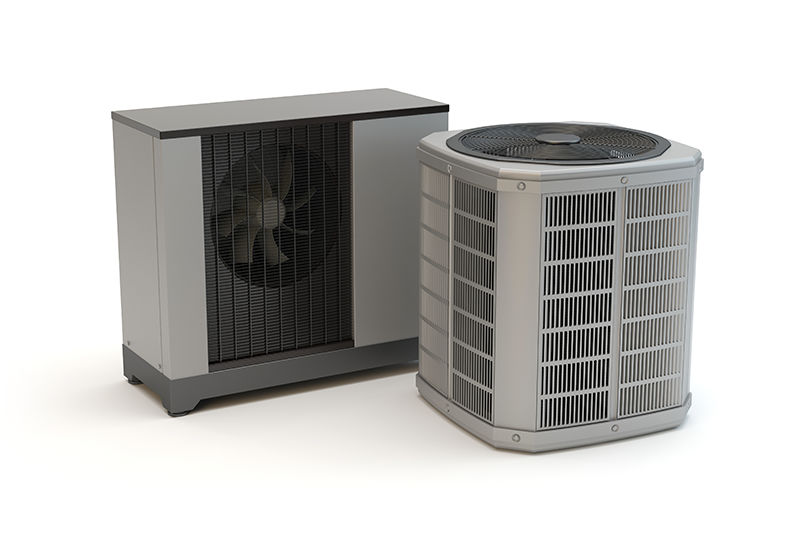Conventional HVAC or a Heat Pump: Which Is Better?

We all take climate control for granted these days. In winter, we expect warmth from our heating system; in summer, we demand the cool comfort of air conditioning. Most Kitty Hawk homeowners don’t give that a second thought—until the heating, ventilation, and air conditioning (HVAC) system breaks down and replacement decisions need to be made. Today, the majority of homes either use a conventional air conditioner (AC) and furnace combination or a heat pump. Our team at Anderson Heating and Cooling is well-versed in the difference as well as the benefits of each type of system.
The Basics of a Conventional Furnace and AC System
In the case of a conventional HVAC system, two separate pieces of equipment share the job of keeping you comfortable. The air conditioner is electric and has both an indoor and outdoor component while the furnace can rely on different fuels to generate heat. The most common furnaces use electricity, natural gas, or propane to generate heat.
Furnaces and air conditioners share the components that circulate the conditioned air through your North Carolina home. They both utilize the same blower fan, air duct network, and thermostat. Smart thermostats can help you micro-control your environment, and when used in combination with zone control systems, can deliver individualized comfort and increased efficiency. Newer, high-efficiency systems offer additional features such as variable-speed motors that can save you even more energy.
The Basics of a Heat Pump
A heat pump, on the other hand, is one unit that provides both heating and cooling to your home. A heat pump operates by essentially moving heat into or out of your home, depending on the season. In summer, the heat pump moves heat from inside your home to outside. A heat pump works in reverse during winter; it moves heat from outside to inside your home. Heat pumps are most popular in areas with relatively mild winters. Heat pumps can still heat your home in colder temperatures, however the amount of heat available outside may not be enough to keep you comfortable in colder climates.
The Best Situations for Conventional Furnace and Air Conditioner
Since furnaces generate heat using a fuel, they often perform better in colder climates. Homeowners in the coldest areas of the country can rely on their furnace to keep them comfortable all winter long, even on the coldest days. In some areas of the country, air conditioners are not needed, but more and more our expert installers are adding air conditioners in northern regions. With a furnace, you can choose to go with, or without, the added expense of an AC.
The Best Situations for a Heat Pump
Overall, heat pumps are more energy efficient and environmentally friendly than conventional furnace and AC systems. They simply use a smaller amount of electricity to perform the transfer of heat from one area to another, making them less expensive to operate. According to the U.S. Department of Energy, some homeowners might save up to half their annual energy costs by using a heat pump over a conventional furnace/AC combination. The potential savings is dependent on the cost of fuel in your region.
One type of heat pump is particularly efficient and sustainable: a geothermal heat pump. These heat pumps use the ground as a constant temperature source rather than depending on outdoor temperatures or burning of fossil fuels. They essentially use the earth’s natural temperature, which stays generally constant throughout the year, to heat and cool your home.
We Have Answers to Your Comfort Questions
Reach out to our team at Anderson Heating and Cooling in Kitty Hawk, NC, to get more information. Our trained professionals would be happy to explain the intricacies of different air conditioning systems, furnaces, and heat pumps. We want to help you make the best decision for your family, home and budget. Call at 252-619-3105 or contact us online.
Need HVAC Service?
Contact the experts at Anderson Heating & Cooling.
Call us at 252-619-3105!